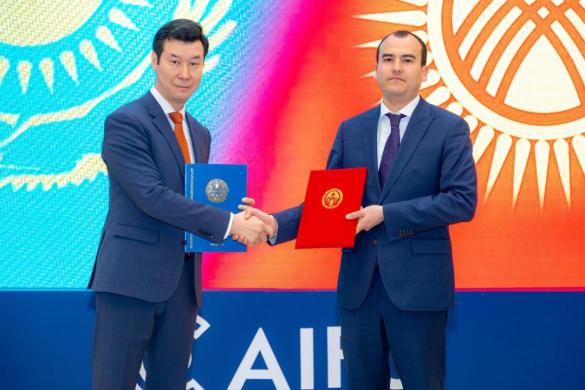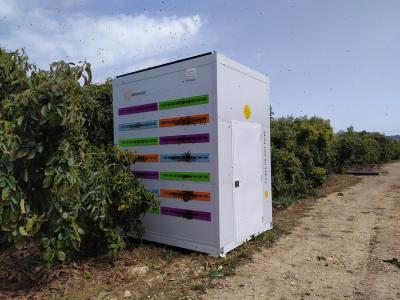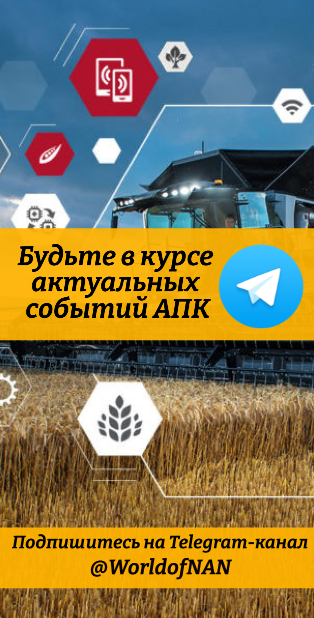
Last couple of weeks Kazakhstan farmers received not the best news: there was a buzz around the tariffs of the Qolday.kz platform, or the introduction of utilization fee for agricultural machinery. We decided to take a little break from these subjects and switch to something more positive. On July 2, the Head of State Kassym-Jomart Tokayev signed the Law of the Republic of Kazakhstan "On introducing amendments and addenda to some legislative acts of the Republic of Kazakhstan on issues of Internet accessibility in rural areas".
This information in the overall news flow on the introduction of enhanced quarantine in Kazakhstan from July 5 was somehow lost, but providing access to the Internet in rural areas is one of the key areas in the development of the agro-industrial complex of the country as a whole.
According to media reports, the amendments signed by the President are aimed at accelerating this work. Thus, the amendments and additions will allow telecommunications operators to build antenna-mast structures on leased land plots without changing their intended purpose (regardless of land categories), as well as under a simplified scheme.
Besides, norms on erection of antenna-mast structures and supports for cellular or satellite communication equipment have been specified, as well as norms on provision of places for their construction by local executive bodies have been specified. Thanks to the signed amendments, a significant acceleration of all this work can be expected.
The Internet for the villagers today is not just an opportunity to integrate into the general information and service flow of the society, as well as to receive all necessary public and private services, but also a necessary condition for the introduction of digital technologies in production, including telematics systems, accurate weather forecasting and irrigation.
According to the Ministry of Digital Development, Innovation and Aerospace Industry of Kazakhstan, since the beginning of the year about 400 remote villages in Kazakhstan have already been connected to the network. It is expected that by the end of 2020 the quantity of the settlements provided with the high-speed Internet will increase to 5 163. It will also open access in villages for more than 7.6 million people to online education, telemedicine, public services and electronic commerce. It should be noted that these settlements cover 99.3% of the country's population.
Undoubtedly, this is good news for the villagers, the only thing left is for the Internet connection to be stable. We all remember how in the middle of spring 2020 the people of Kazakhstan had problems with the Internet. In spring, many citizens applied for the "42 500" online, while the Ministry of Education launched a project on distance learning. These factors put enormous pressure on the country's telecommunications infrastructure, which caused regular disruptions.
"70% of our schoolchildren were able to organize their educational process through the e-learning mode. Another question is how much the Internet could withstand such a load. Teachers today are ready to work online as well. During the spring holidays they worked on their professionalism, improved their skills, took courses, learned how to work online, organized video conferencing, etc. But we see that Internet providers cannot withstand the heavy load," said Sholpan Karinova, Deputy Minister of Education and Science of Kazakhstan, in spring.
President Kassym-Jomart Tokayev did not ignore these problems. At the meeting of the State Commission for Emergency Situations in mid-April, the head of state stated that the country's Internet system failed to withstand the test of strength.
"With the transition of citizens to quarantine mode and introduction of distance learning in schools and universities, the Internet system failed the strength test, the so-called stress test. Serious systemic shortcomings have emerged," Tokayev said.
The President stressed that lessons should be learned from these situations in the post-virus period.
"The main thing is to prepare a plan to bring the IT sphere to a qualitatively new level in order to have a digital state in reality. Next year should pass under the sign of effective digitalization of our state. We have to implement a radical reform of health care, education and science. The crisis, as I have already said, is good enough to reveal all the shortcomings and bring with it huge opportunities. We must seize them," the President concluded.
We can only hope that the shortcomings that emerged in spring will be addressed, given that Kazakhstan is already actively working to introduce the next generation of 5G internet.
"Now we have a very common technology 4G, which is used on smartphones. Much work is being done on the frequency spectrum, which will use 5G. In three cities - Almaty, Nur-Sultan and Shymkent - we have set up test zones. The tests showed good results," Kuanyshbek Yessekeyev, chairman of the Kazakhtelecom, said at a press conference in mid-June.














































Обсуждение